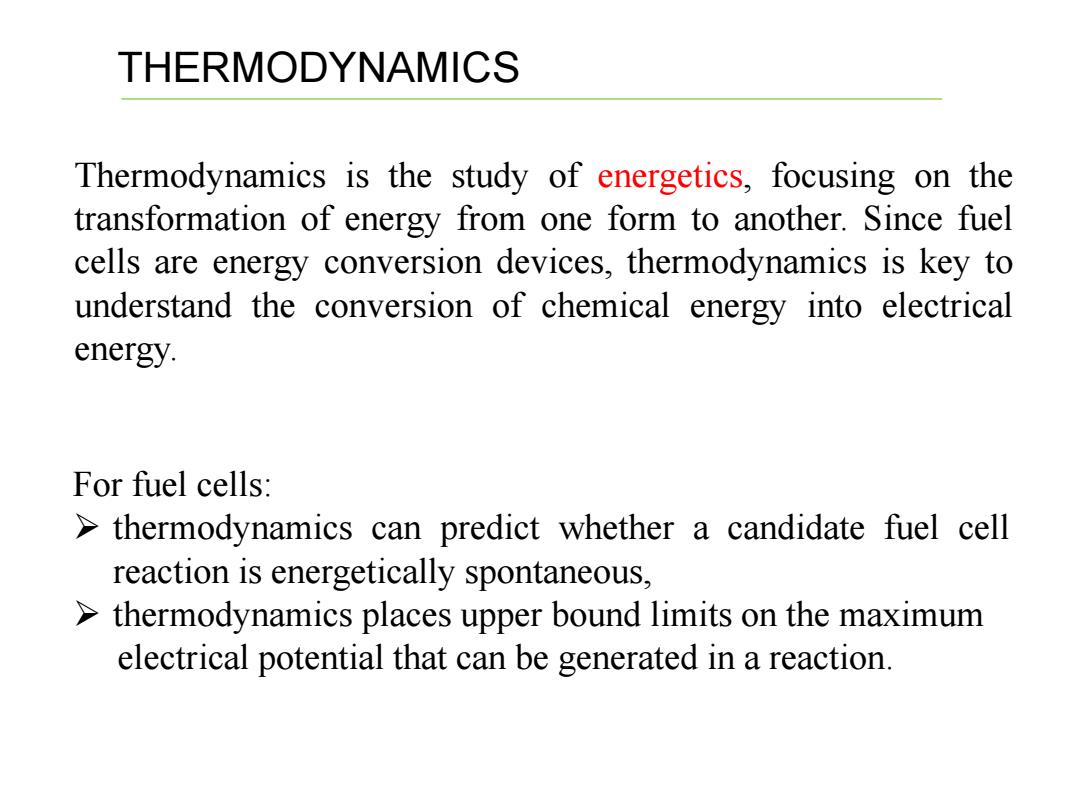
THERMODYNAMICS Thermodynamics is the study of energetics,focusing on the transformation of energy from one form to another.Since fuel cells are energy conversion devices,thermodynamics is key to understand the conversion of chemical energy into electrical energy. For fuel cells: >thermodynamics can predict whether a candidate fuel cell reaction is energetically spontaneous, >thermodynamics places upper bound limits on the maximum electrical potential that can be generated in a reaction
THERMODYNAMICS Thermodynamics is the study of energetics, focusing on the transformation of energy from one form to another. Since fuel cells are energy conversion devices, thermodynamics is key to understand the conversion of chemical energy into electrical energy. For fuel cells: thermodynamics can predict whether a candidate fuel cell reaction is energetically spontaneous, thermodynamics places upper bound limits on the maximum electrical potential that can be generated in a reaction
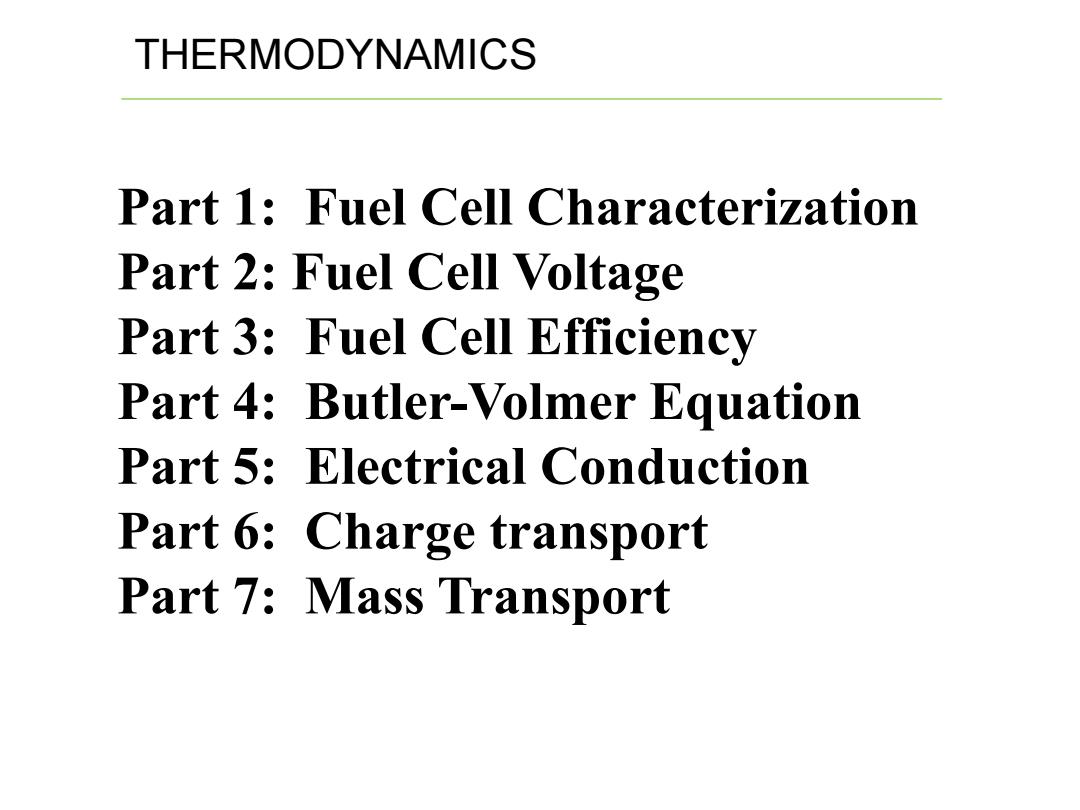
THERMODYNAMICS Part 1:Fuel Cell Characterization Part 2:Fuel Cell Voltage Part 3:Fuel Cell Efficiency Part 4:Butler-Volmer Equation Part 5:Electrical Conduction Part 6:Charge transport Part 7:Mass Transport
Part 1: Fuel Cell Characterization Part 2: Fuel Cell Voltage Part 3: Fuel Cell Efficiency Part 4: Butler-Volmer Equation Part 5: Electrical Conduction Part 6: Charge transport Part 7: Mass Transport THERMODYNAMICS
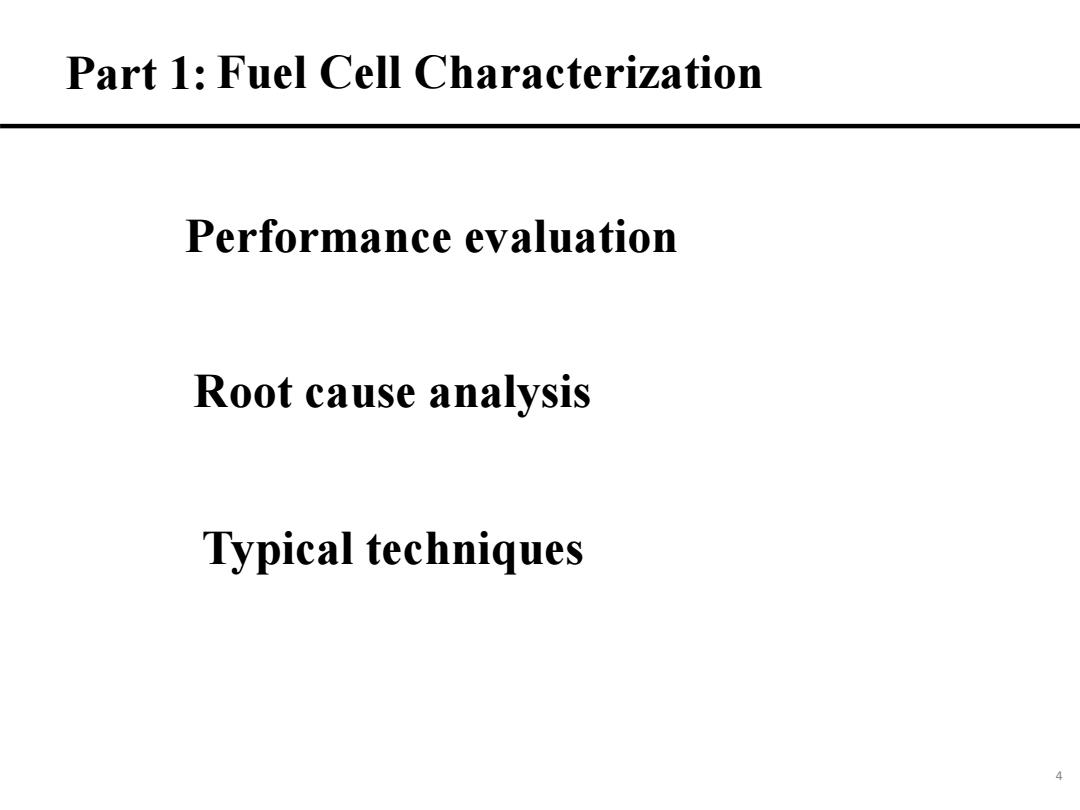
Part 1:Fuel Cell Characterization Performance evaluation Root cause analysis Typical techniques
4 Fuel Cell Characterization Typical techniques Performance evaluation Root cause analysis Part 1:
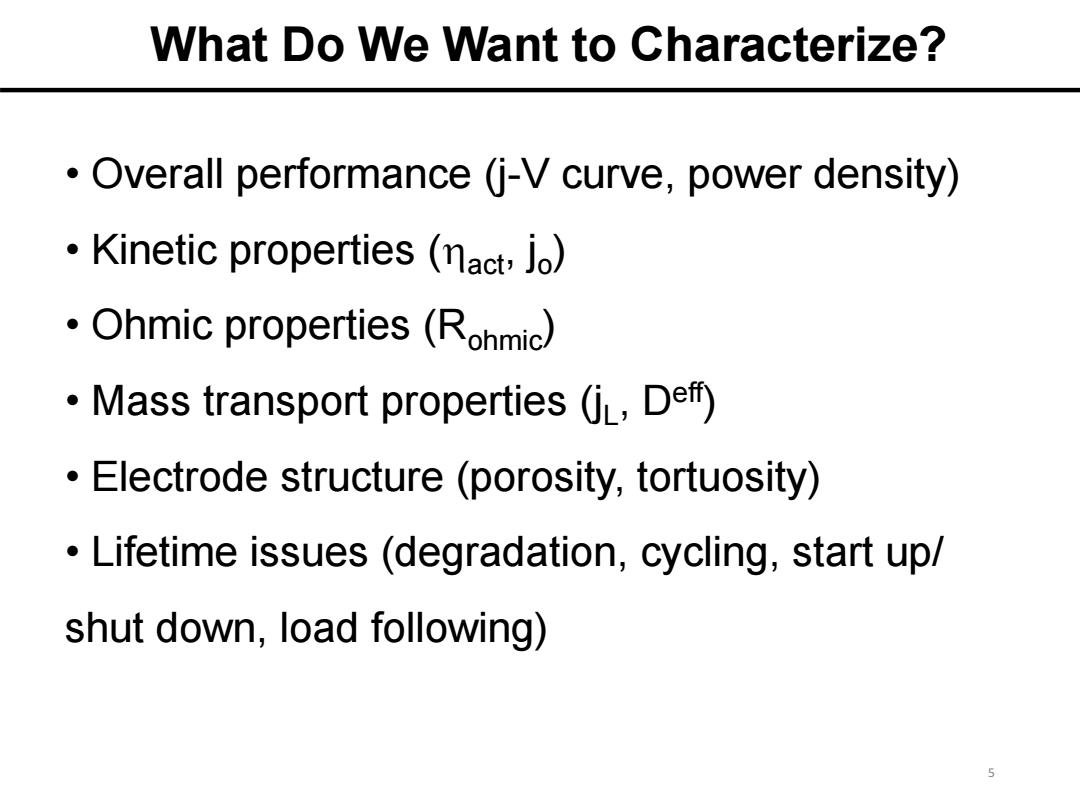
What Do We Want to Characterize? Overall performance (j-V curve,power density) Kinetic properties (nact,jo) Ohmic properties (Rohmic) Mass transport properties (jL,Def) Electrode structure (porosity,tortuosity) Lifetime issues (degradation,cycling,start up/ shut down,load following) 5
5 What Do We Want to Characterize? • Overall performance (j-V curve, power density) • Kinetic properties (hact, jo ) • Ohmic properties (Rohmic) • Mass transport properties (jL , Deff) • Electrode structure (porosity, tortuosity) • Lifetime issues (degradation, cycling, start up/ shut down, load following)
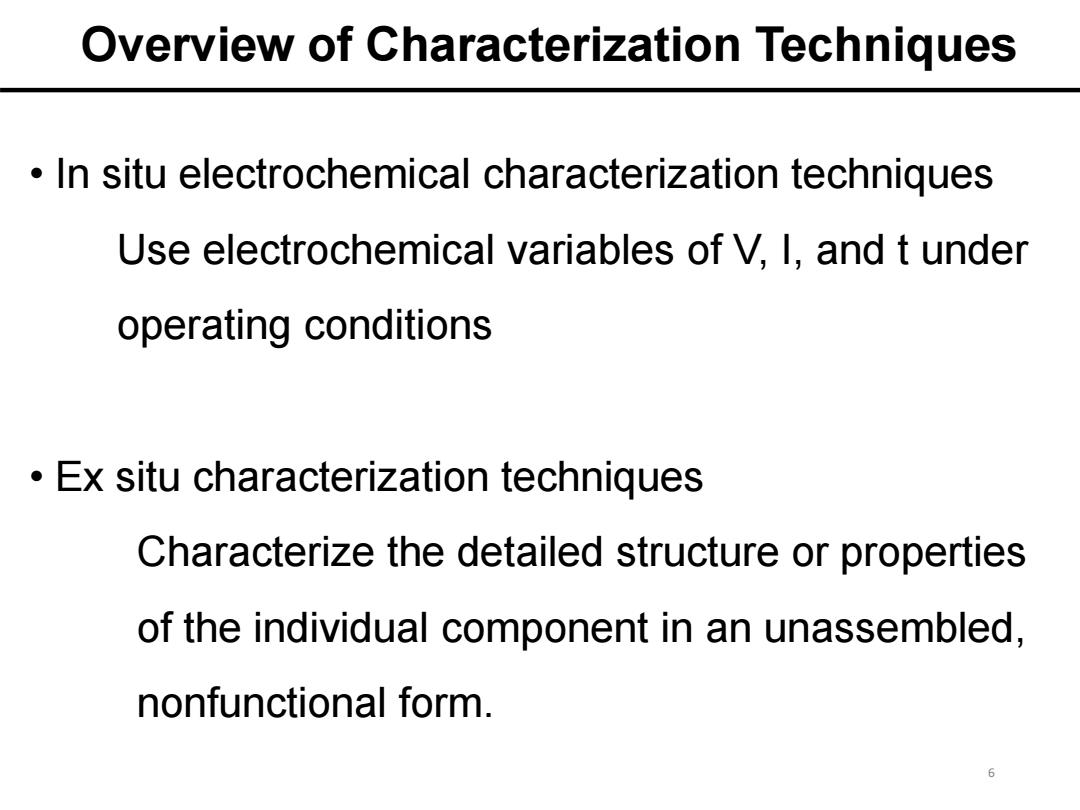
Overview of Characterization Techniques In situ electrochemical characterization techniques Use electrochemical variables of V.I,and t under operating conditions Ex situ characterization techniques Characterize the detailed structure or properties of the individual component in an unassembled, nonfunctional form. 6
6 Overview of Characterization Techniques • In situ electrochemical characterization techniques Use electrochemical variables of V, I, and t under operating conditions • Ex situ characterization techniques Characterize the detailed structure or properties of the individual component in an unassembled, nonfunctional form
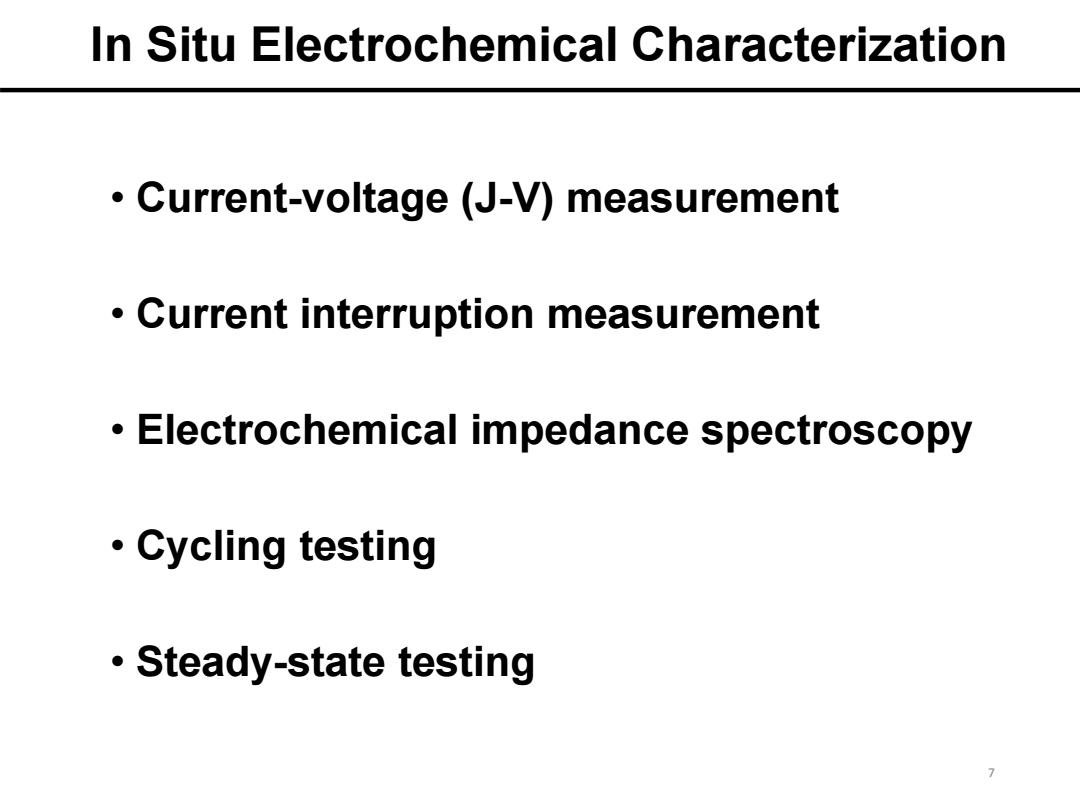
In Situ Electrochemical Characterization Current-voltage (J-V)measurement Current interruption measurement Electrochemical impedance spectroscopy ·Cycling testing Steady-state testing
7 In Situ Electrochemical Characterization • Current-voltage (J-V) measurement • Current interruption measurement • Electrochemical impedance spectroscopy • Cycling testing • Steady-state testing
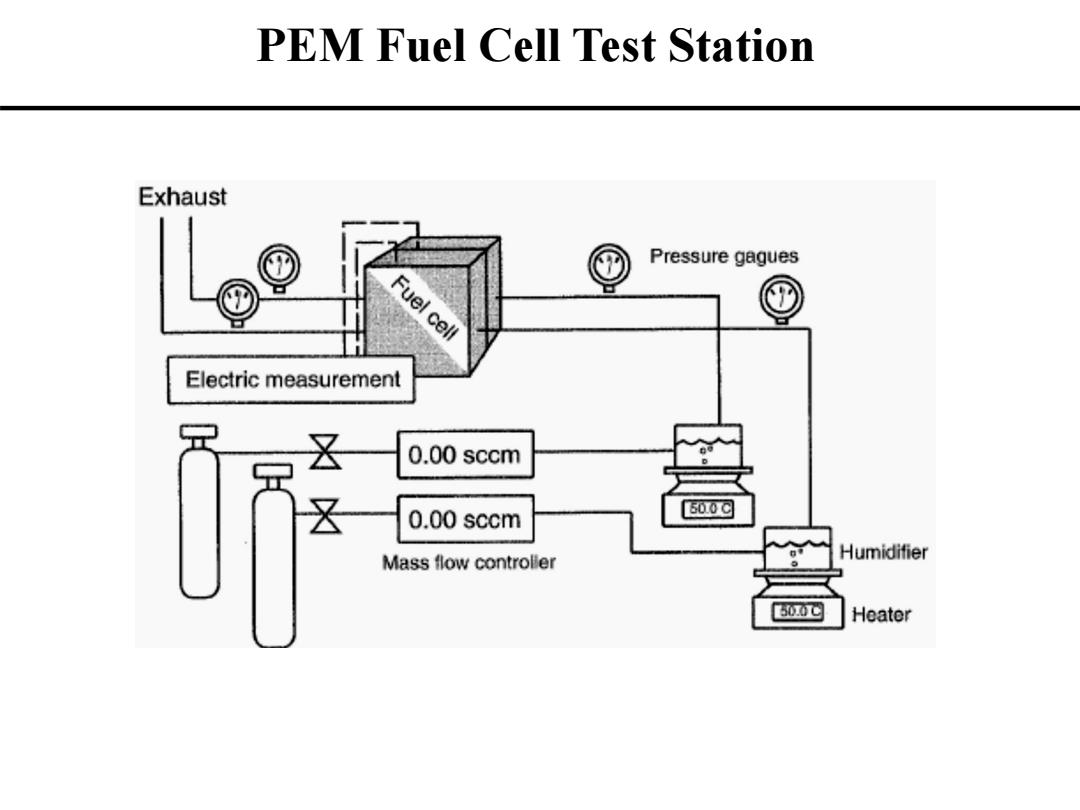
PEM Fuel Cell Test Station Exhaust Pressure gagues Fuel cell Electric measurement 0.00 sccm 0.00 sccm 500g Mass flow controller Humidifier 500C Heater
PEM Fuel Cell Test Station
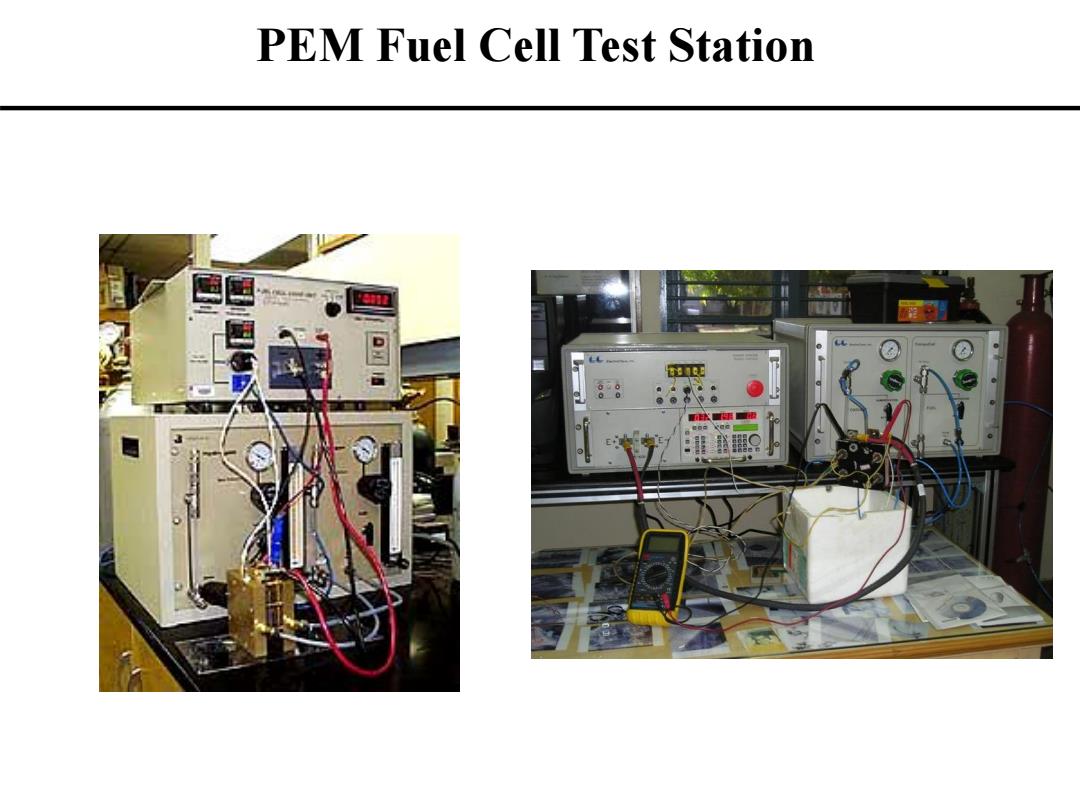
PEM Fuel Cell Test Station 配 8 相Qe代但a 9
PEM Fuel Cell Test Station
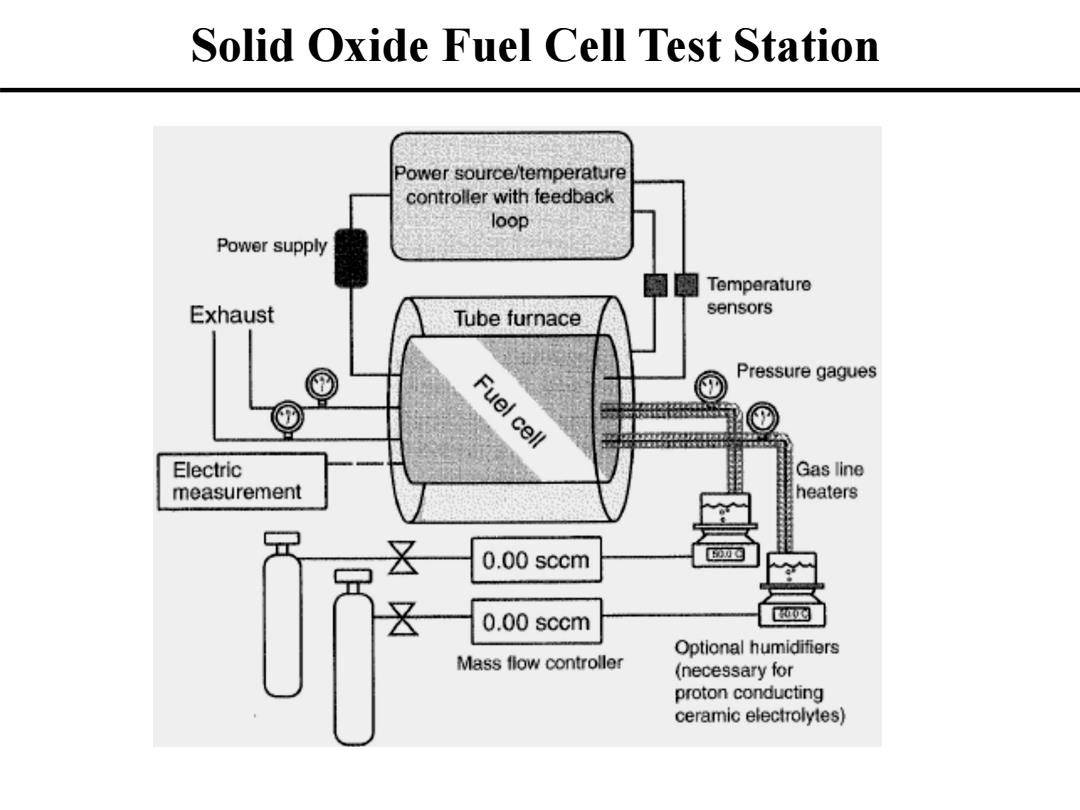
Solid Oxide Fuel Cell Test Station Power source/temperature controller with feedback loop Power supply Temperature Exhaust Tube furnace sensors Pressure gagues Fuel cell Electric Gas line measurement heaters 0.00 sccm 0.00 sccm Optional humidifiers Mass flow controller (necessary for proton conducting ceramic electrolytes)
Solid Oxide Fuel Cell Test Station
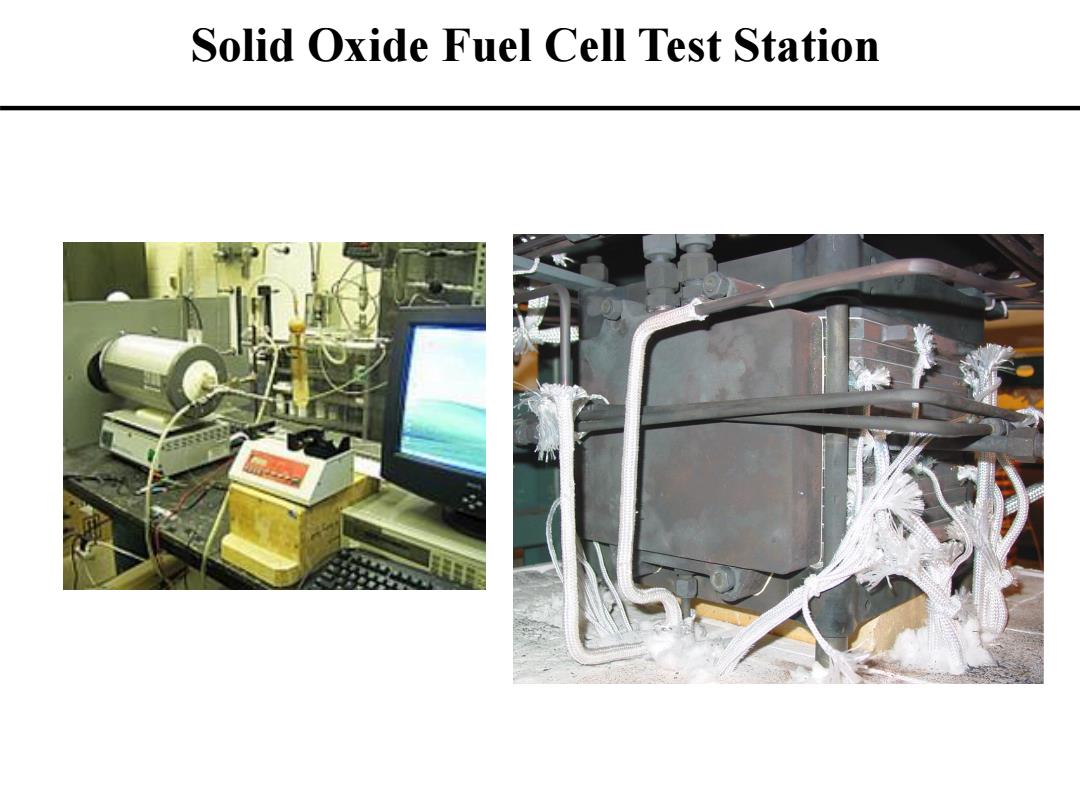
Solid Oxide Fuel Cell Test Station
Solid Oxide Fuel Cell Test Station